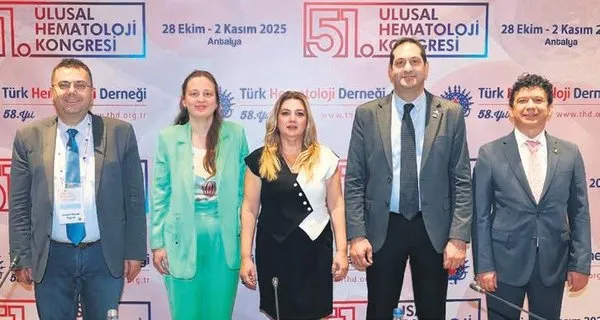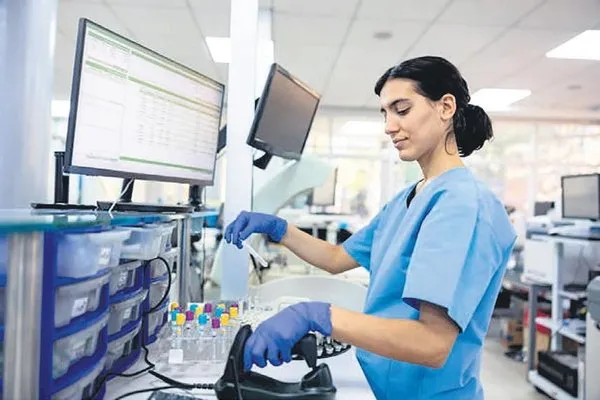Revolution in the treatment of hematological diseases

The 51st National Hematology Congress, organized by the Turkish Hematology Association, was held in Antalya. I met with hematology experts at the congress. Turkish Hematology Association President Prof. Dr. Muhlis Cem Ar said, "Steps taken in hematology with smart drugs and cellular therapies have brought us very close to our goal of making blood cancers treatable and even manageable as a chronic disease. The widespread use of diagnostic tests and AI-supported analysis, combined with identifying the most appropriate drug and dose for each patient, maximizes the effectiveness of treatment."
TREATMENT WITH A ONE PILL Prof. Dr. Ar stated that it was possible to control a disease that once required a transplant simply by taking a smart medication at home. He said, "But this time, that convenience soon brings with it forgetfulness and incompatibility. The most common complaint doctors have is that their patients forget their medications."
Prof. Dr. Ar stated that the Ministry of Health steps in when a drug is not available in Turkey, saying, "If that drug is not available in our country, the process of obtaining it begins when you apply to the Ministry of Health to obtain a licensed drug from around the world. We have that opportunity."

PERSONALIZED TREATMENTS INCREASE HOPES Prof. Dr. Selami Koçak Toprak, Research Secretary of the Turkish Hematology Association, pointed out that although the number of hematological cancer cases such as leukemia is increasing worldwide, the mortality rates from these diseases have significantly decreased and the chances of survival have increased. He said, "The discovery of treatment options, especially those that can be called targeted therapies and immunotherapies, which are publicly known as 'smart drugs' or 'living drugs,' is very important. In the last 20 years, the majority of hematological cancer drugs approved by the FDA and the European Medicines Agency (EMA) are now targeted drugs and immunotherapies. The effect of targeted drugs is to discover important mechanisms in the disease pathways within the cancer cell and, so to speak, 'hitting' the intermediate steps along this path."

DESTROYING THE TUMOR Prof. Dr. Toprak also provided information about immunotherapies, another drug option, saying, "These are drugs that enable the patient's immune cells to recognize tumor cells that have managed to evade the person's immune system again. Thanks to these drugs, the patient's immune system cells can recognize and destroy the tumor cells regardless of their type."
CAR-T CELL THERAPY Another revolutionary development in the treatment of hematological cancers is CAR T-cell therapy, Prof. Dr. Toprak said, “This treatment method is based on reprogramming the patient’s own immune cells, T cells, in a laboratory environment to recognize cancer cells and then returning them to the patient. Successful results can be achieved, especially in resistant lymphomas and acute leukemia.” Prof. Dr. Toprak also noted that the development of new drugs for hematological cancers continues at a rapid pace worldwide, saying, “Seeing that almost one new treatment option is approved and entering clinical use almost every year gives us, physicians, even more hope for the recovery of our patients.”
870 HEMATOLOGISTS FOR A POPULATION OF 86 MILLION Turkish Hematology Association Secretary-General Prof. Dr. Özgür Mehtap stated that the insufficient number of specialist physicians is the most urgent issue in hematology, saying, "There have been tremendous advances in hematology over the last 10-15 years. Treatment success rates and survival rates have increased significantly. However, one of our fundamental problems is the lack of truly trained physicians. There are 252 pediatric hematologists and 618 adult hematologists in our country, and Turkey has a population of 86 million. Considering this ratio, we are truly working diligently to reach all our patients. However, proportionally, we remain quite low."
sabah





